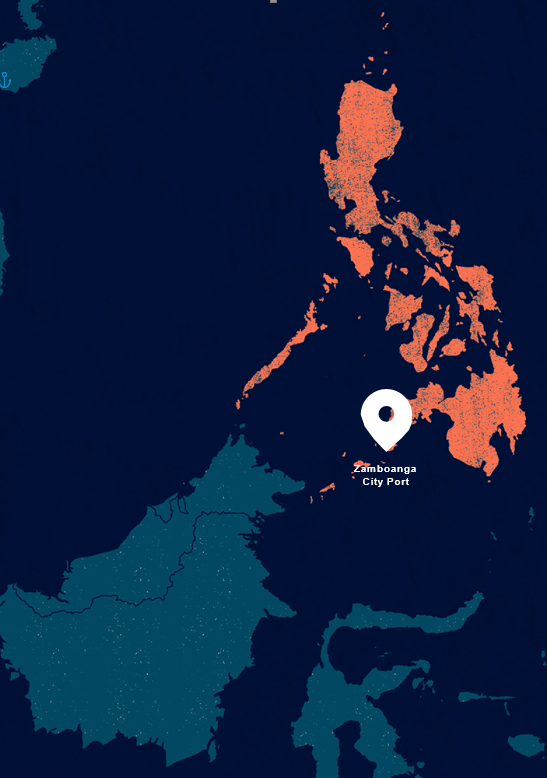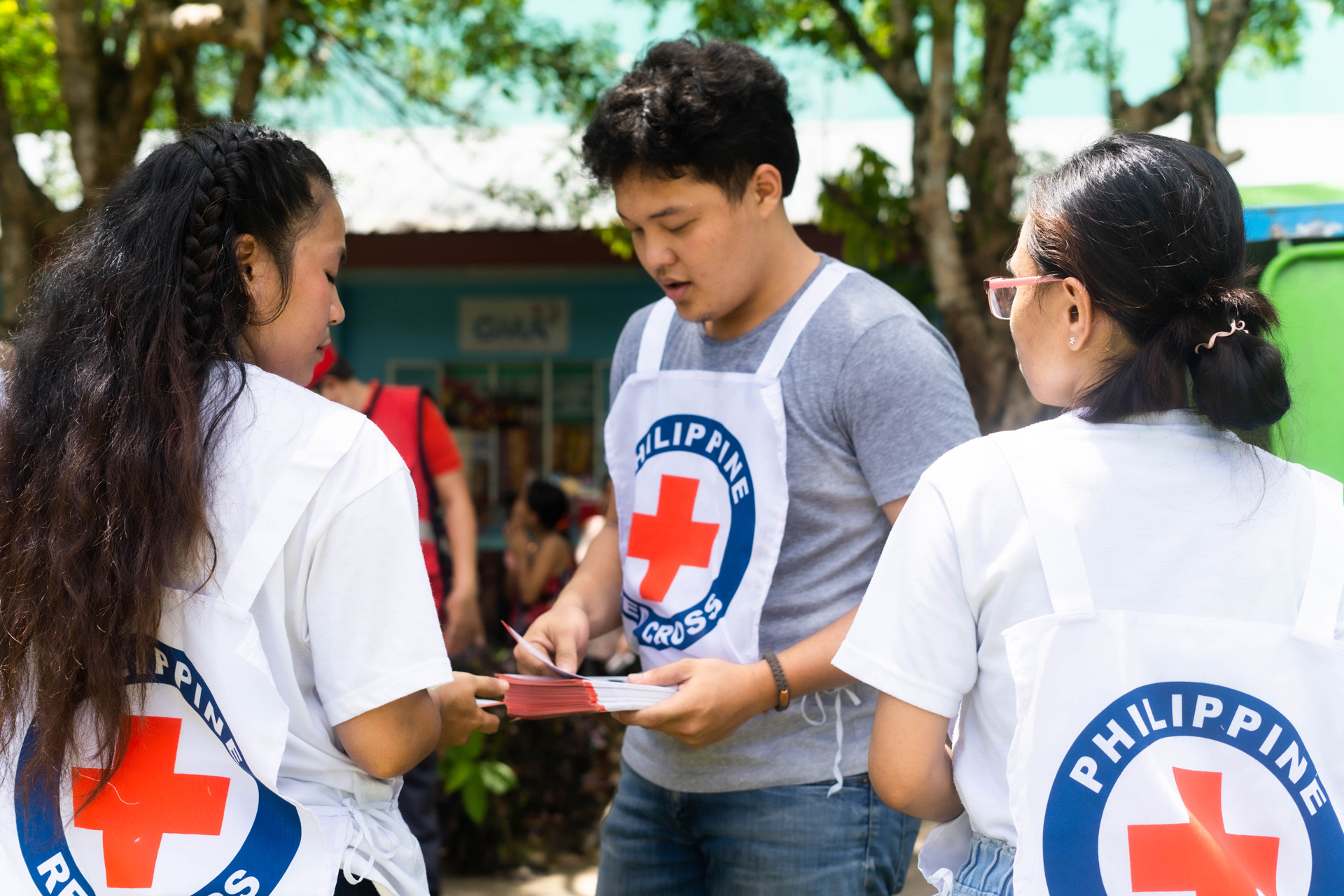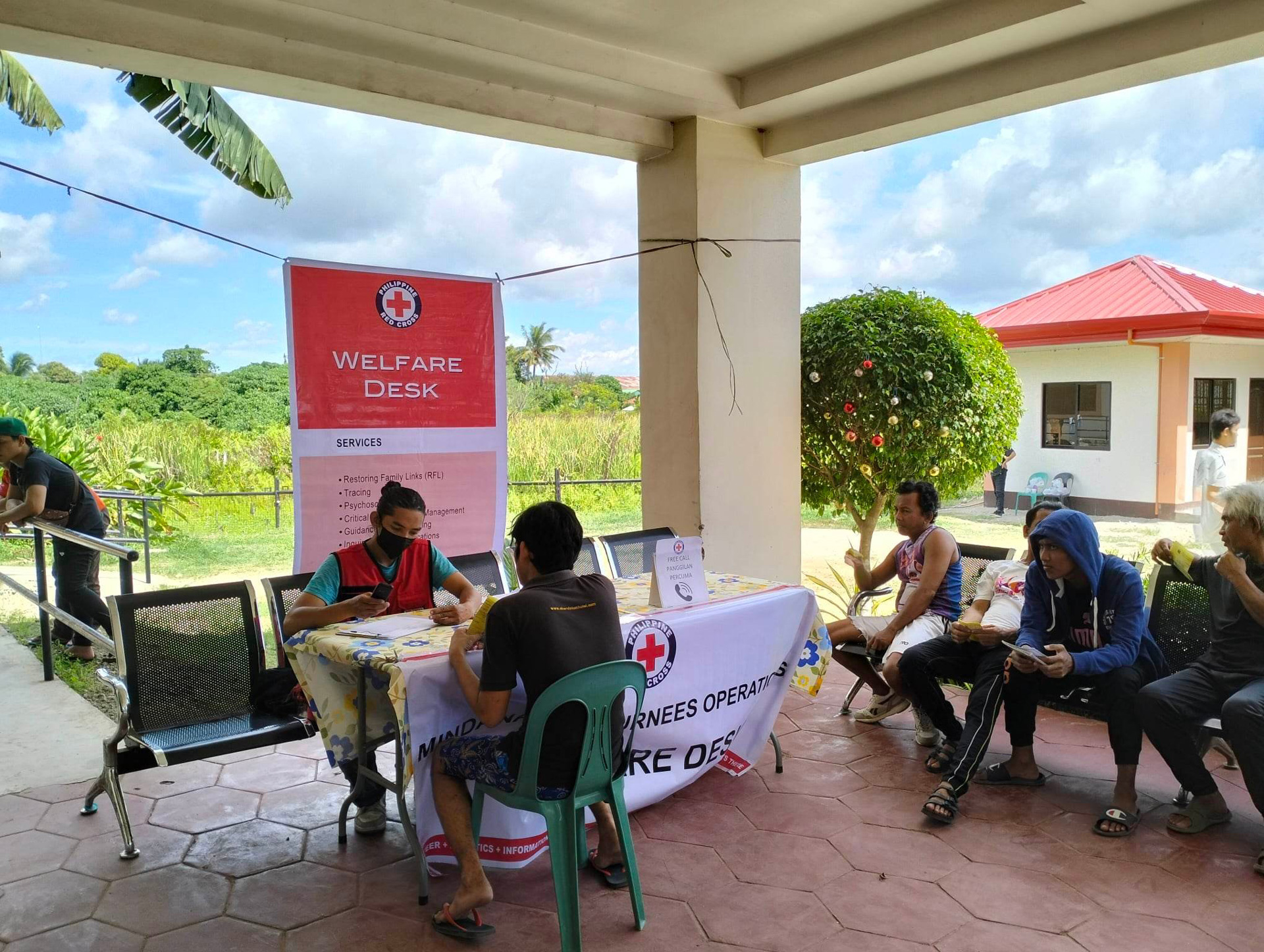HSP Case Study: Philippine Red Cross
Philippine Red Cross
Temporary Humanitarian Service Point
Zamboanga City, Philippines.
2017
- People deported from Sabah, Malaysia
- Healthcare (including first aid and mental health and psychosocial support)
- Food
- Hygiene promotion
- Restoring family links
- Safe referrals
The Philippines has one of the largest diasporas in the world with an estimated 10 million Filipinos living abroad. Since the 1970s, people from the southern Philippine Island of Mindanao and the Sulu archipelago have migrated to the state of Sabah in Malaysia, fleeing conflict and economic deprivation. The Malaysian authorities have been organizing large-scale deportations from Sabah for several decades. In recent years, the process has been suspended multiple times. First, because of the sinking of a ship used for deportations (in 2016) and later due to the COVID-19 pandemic (in 2020). On both occasions the authorities undertook larger-scale deportations when the process eventually resumed.
Many returnees were born or lived in Malaysia for many years before being arrested. Some of them have never spoken or no longer speak the languages of Mindanao. While awaiting deportation, they are detained in congested immigration detention centres, sometimes for over a year, exposing them to health-related and protection risks. Men, women and children arrive in Zamboanga City Port in the Philippines in the middle of the night, tired and disoriented. A needs assessment in 2017 by the Philippine Red Cross noted immediate needs among returnees for temporary accommodation, food, essential household and hygiene items (blankets and sleeping mats), medical and psycho- social support, WASH and restoring family link services. Some returnees also needed other services such as support to meet transportation costs to their places of origin.
When the Malaysian authorities undertook large-scale deportations from Malaysia in 2017 and 2020, the Philippine national government asked the Philippine Red Cross for support in providing humanitarian assistance to arrivals at Zamboanga City Port. Following internal reflections and discussions with government officials, the Philippine Red Cross requested support from the IFRC Disaster Relief Emergency Fund (DREF) in both years.
The Philippine Red Cross set up a ‘welfare desk’ at Zamboanga City Port, building on a pre-existing flagship approach ordinarily used to respond to needs in the context of disasters and conflicts. In such cases, welfare desk tents are usually set up within 24 hours of a disaster to provide information, first aid and medical care, food, water and connectivity services. The Philippine Red Cross decided to set up a temporary welcoming area in a tent at Zamboanga City Port during each disembarkation as a space for returned people to access information and assis- tance. The Philippine Red Cross set up a ‘welfare desk’ in the ports of Basilan, Sulu and Tawi Tawi as well.
Welfare desk volunteers are trained in first aid, healthcare, restoring family links, psychosocial support and the IFRC minimum standards for protection, gender and inclusion in emergencies, among other areas.
Recently, the Philippine Red Cross welfare desks assisting migrants and displaced persons were rebranded as HSPs. This new label allows the National Society to more clearly align itself with the IFRC`s wider approach and programmes for migrants and displaced persons.
“They [the returnees] are much more open to speaking to us because they feel that they are in a safe place, that volunteers are there to listen and that the Red Cross would not engage in a way that would harm them, that they can trust the Red Cross.”
Staff member, Philippine Red Cross
The HSP in Zamboanga City Port provides first aid, including psychological first aid and mental health and psychosocial support, and transportation to hospital via ambulance if necessary, hot meals, services for restoring family links (free phone calls, tracing services, ‘I am safe and well’ messages, prepaid SIM cards, access to Wi-Fi and telephone charging stations) and hygiene promotion. The team organizes safe referrals to other service providers, in particular for survivors of abuse or exploitation. And they provide continuity of care via the various Red Cross chap- ters located throughout the country once people leave the Zamboanga Port area.
During the large-scale deportations in 2017 and 2020, the Philippine Red Cross’ Zamboanga City chapter responded to 24 separate arrivals of groups of returnees, assisting 6,665 people. The National Society continues to implement the HSP in Zamboanga City Port. Since July 2022 there have been 8 additional responses, each addressing needs among around 150–200 returnees at a time.
Returnees have shared that they trust the Philippine Red Cross as a neutral organization that is there to help, and appreciate the individual attention and personal touches from the team.
As long as deportations take place, humanitarian assistance will be needed at disembarkation points. However, the national government has, over time, improved the quality and range of its support to returnees (linked to its partnership with the Philippine Red Cross), allowing the National Society to contemplate refocusing its resources and expertise elsewhere.
The lack of economic opportunities in Mindanao, among other factors, means that returnees often go back to Malaysia after their return to the Philippines. Some people go through the migration-deportation process numerous times.
“There is still a need [for assistance at the port] but in terms of the gap, it’s already slimming. The government is already doing the same amount of assistance as the Red Cross is doing [...] We’re still taking part, but the government is learning about the way that we work so we’re refocusing ourselves to
other areas where the Red Cross can support, like livelihoods.”Staff member, Philippine Red Cross
Philippine Red Cross insights
“A continuous process making sure that our presence is understood by all”
Philippine Red Cross staff member
People accessing the HSP at the Zamboanga City Port are migrants, or children of migrants, who went to Sabah in search of a better life for themselves and their families. They were arrested in Malaysia and detained in very difficult conditions for months, sometimes years, before their forced removal to the Philippines.
The Philippine Red Cross implements several community engagement and accountability activities to foster trust with returnees and the local population, and to ensure that all stakeholders understand the nature of its presence.63 The National Society is the only humanitarian actor providing assistance to returnees in the different ports in the country. It is constantly looking for ways to foster trust with the community, including by clarifying that people accessing Red Cross services will never be reported to the authorities for doing so, and that the Philippine Red Cross will not share their personal data with the author- ities. Feedback boxes are available in the HSP, at local branches, and during events organized by the Philippine Red Cross to collect any type of community feedback. Food boxes also contain the branches’ contact details so that return- ees can call or send text messages and have a space to write feedback about Red Cross services.



